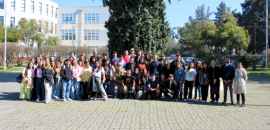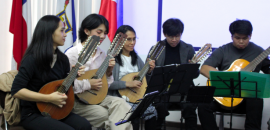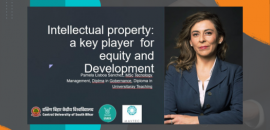You are here
Different actors come together to develop a new internationalization policy for the University of Santiago
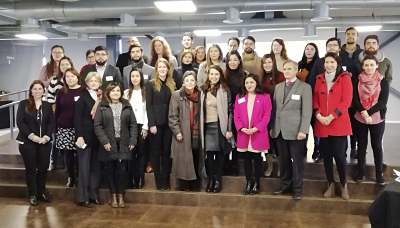
“As a university, are we truly prepared for what is to come, for the challenges of multiculturality?” asks the Vice Rector of Outreach, Dr. Karina Arias Yurisch to guests from the public and private sector, academia, administrative staff, professionals and students who came together in the “Dialogues for the internationalization of the University of Santiago” encounter.
The outlook on higher education is changing. The limited growth of internationalization of all types, including the massive student mobility around the world, campus expansion, co-tutoring, the use of English for teaching and research through global networks are all influencing how universities position themselves globally.
Within this context, the activity “Dialogues for the internationalization of the University of Santiago,” organized by the Department of International and Inter-University Relations (DRII) was held on Wednesday June 26th, and invited representatives from the public and private sector, graduates, students and professors to share their different experiences and ideas on how to incorporate an international dimension within the university's research, teaching and other service functions.
The event was kicked off with the presentation by Vice Rector of Outreach, Dr. Karina Arias Yurisch, indicating that this event is key to the future of the university.
How well prepared are we for what is to come, for the challenges of multiculturality? A university like ours must be thinking about the next twenty years, therefore, we need to be talking to strategic players in order to hear their ideas and visions, because dialogue is key to being able to construct a policy to face the future.”
Along with the Vice Rector, the director of the Department of International and Inter-University Relations, Anoek van den Berg stated that we still have a long way to go to reach national and international figures, therefore, we have to work together to achieve an effective policy that involves the entire campus.
“Is an intercultural vision incorporated today within the student's formation? According to national data, only 1% of registered university students study abroad. USACH has an average of 0.6%, while developed countries have figures of around 10%.”
Adding that, “internationalization focused on improving higher education for students and academia looks to make a better contribution to society as a whole.”
Multi-sectoral policy
Among the invited guests, Barbara Sepúlveda, USACH graduate and current coordinator of ProChile states, “I think it is really interesting how these debates include those of us involved in helping universities open up to the world. We live in an ecosystem that has to be international, and so it’s great that the University of Santiago facilitates these types of discussions as an institutional policy and that means improving teaching and research at the international level for future generations.”
Likewise, Diana López, academic head of the U.S. Embassy in Chile highlighted that, “we also have to open up to each other, universities must create alliances with foreign institutions, and continue to expand these relationships in terms of student exchange programs, teaching and research, and get to know each other better, because that is the way to put our prejudices aside.”
Representing academia, Claudio Martínez is part of the Faculty of Technology and participates in international research for the Montevideo Group. He points out that, “the power to access other perspectives, to generate networks, not only benefits us as academics, but also allows us to transmit to our students new innovative ways to capture new latitudes, which is why we must promote and join these international initiatives.”
Representing the Faculty of Humanities, Pamela Figueroa, head of Internationalization states that “it has been a very interesting debate, we have proposed new goals, challenges, and with this we are going to strengthen the university's internationalization policy.”
The results of this encounter will soon be reported to the community in the presentation on the internationalization policy.
News
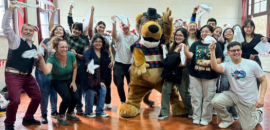 International students learn cueca with Usach Without Borders and Department of Cultures and Arts
International students learn cueca with Usach Without Borders and Department of Cultures and Arts
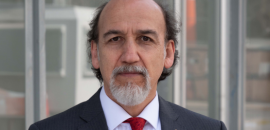 Rector Vidal to join the Governing Board of UNESCO's International Institute for Higher Education
Rector Vidal to join the Governing Board of UNESCO's International Institute for Higher Education
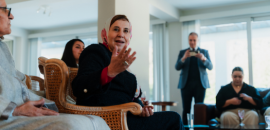 Students visited the Ambassador of Morocco to learn about the country's diplomatic work and culture
Students visited the Ambassador of Morocco to learn about the country's diplomatic work and culture

